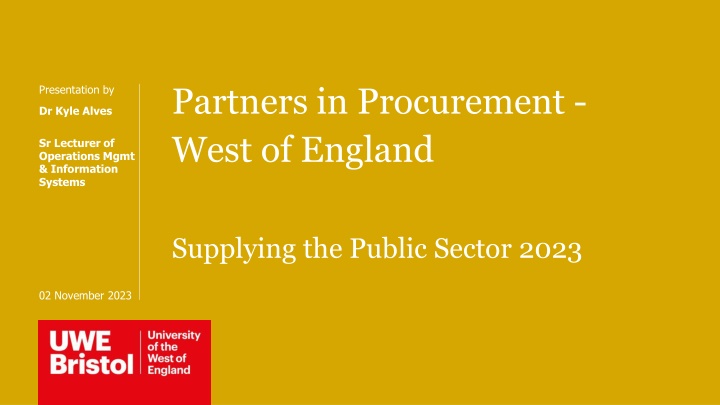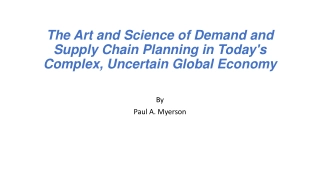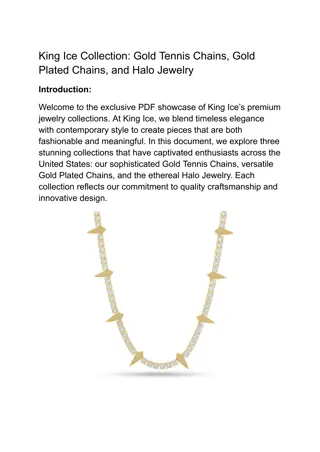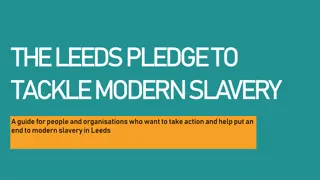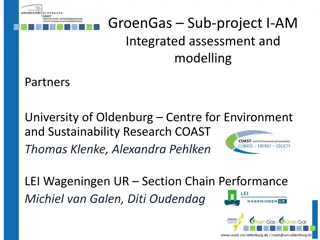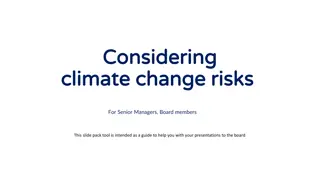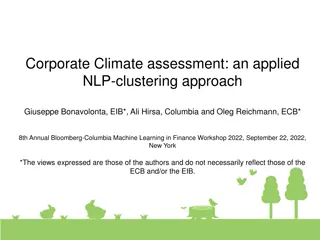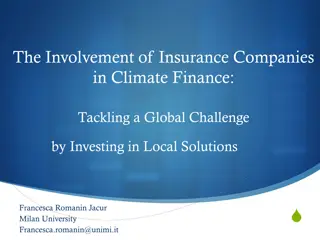Addressing Modern Slavery and Climate Change Risks in Public Sector Supply Chains
The presentation by Dr. Kyle Alves highlights the pressing need to recognize the intersection of modern slavery and climate change in supply chains. Findings reveal a lack of awareness and executive support in mitigating these risks, urging a clear mandate, active risk management mechanisms, and coherence among public sector bodies. Policy recommendations emphasize a national effort to combat these challenges effectively.
Download Presentation

Please find below an Image/Link to download the presentation.
The content on the website is provided AS IS for your information and personal use only. It may not be sold, licensed, or shared on other websites without obtaining consent from the author.If you encounter any issues during the download, it is possible that the publisher has removed the file from their server.
You are allowed to download the files provided on this website for personal or commercial use, subject to the condition that they are used lawfully. All files are the property of their respective owners.
The content on the website is provided AS IS for your information and personal use only. It may not be sold, licensed, or shared on other websites without obtaining consent from the author.
E N D
Presentation Transcript
Partners in Procurement - West of England Presentation by Dr Kyle Alves Sr Lecturer of Operations Mgmt & Information Systems Supplying the Public Sector 2023 02 November 2023
Intersecting Sustainabilities: Protecting both people and planet in supply chains
The challenge Facing the evidence of climate change means we have to reflect on the activities that contribute, like manufacturing In doing so, we also see the gross violations of human rights associated with modern slavery As climate worsens, likely to see increases in climate-driven migration; people fleeing are likely to be vulnerable to exploitation o MS PEC commissioned a study to generate evidence that can instigate change to make improvements on both fronts Working with LUPC & Unseen
Our Approach Investigate the intersection of modern slavery and climate change in multiple tiers of supply chains Interviews: 14 purchasing and sustainability professionals in member organisations 21 account managers and sustainability professionals in suppliers, including tier 2 suppliers. 5 intermediary organisations: those collecting supply chain data, mapping chains, conducting factory audits 9 LUPC at different levels 5 managers at modern-slavery focused organisations
Our (early) Findings There s little acknowledgement of the links between climate change and modern slavery. There is a lack of executive support to reduce modern slavery and climate change risks. There is little knowledge from our participants of how to provide safeguarding of vulnerable individuals. Current actions may provide abusers pre-warning, allowing them to move vulnerable people to different sites.
Policy Recommendations A clear mandate is needed across the public sector to address modern slavery and climate change risks in supply chains Where successes currently exist, it is usually driven by individual or small group desire for change; unsupported by Exec teams. Develop mechanisms to actively manage these risks Interviews showed only Electronics Watch could provide evidence of protecting worker rights Use of assurance providers who actively audit should be expanded Build coherence between public sector bodies involved in addressing modern slavery This is likely going to require a national effort and support
Policy Recommendation 2 Separate weightings for modern slavery, climate change, and social value factors during procurement Allow disqualification from public tendering for poor performance in these areas Install mechanisms that increase data flow to help enforce framework conditions Instead of having buyers having to request production details, consider having some information flow. Function-specific training for staff to manage issues identified during job performance Increase spending with purchasing consortia to support the effective work that already exists
